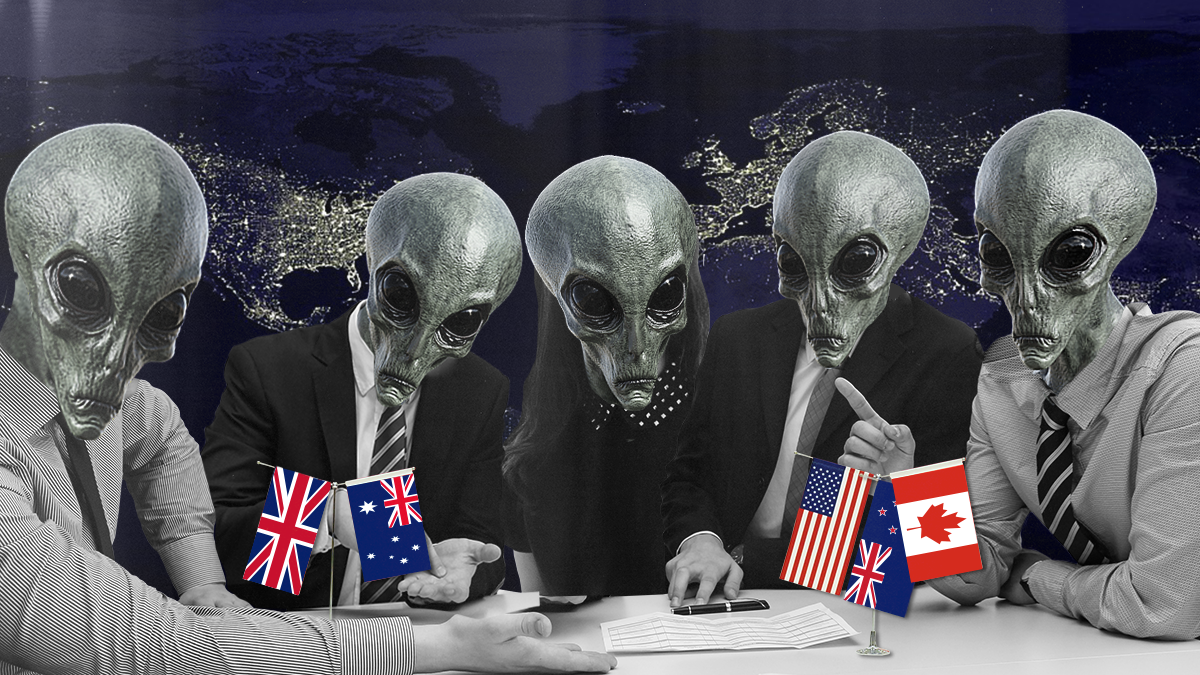The truth is out there … that Canada participated in an international meeting on Unidentified Anomalous Phenomena, aka UFOs. It’s not exactly an episode of the “X-Files,” but it’s caught some attention.
Ottawa confirmed last week that it had taken part in the get-together at the Pentagon in May with its Five Eyes allies. Beyond that, everyone is keeping mum on the details of the confab, which was held to encourage coordination and information sharing on unidentified objects.
News of the meeting comes as former intelligence official and UAP task force member David Grusch hit the press to claim the US government had found “non-human” material “of exotic origin” and was keeping “intact and partially intact” alien crafts. The US government denies this, and Grusch’s claims have been dismissed by some as “crazy.”
Still, the government has reported hundreds of UAP encounters, including an unexplained flying orb. In February, a massive Chinese balloon crossed Canadian airspace and caught headlines in both countries; it was shot down by the US over the Atlantic Ocean.
Just because something is a UAP doesn’t mean it’s extraterrestrial. As Sean Kirkpatrick, director of the All-domain Anomaly Resolution Office at the US Department of Defense says, “The majority of unidentified objects reported to AARO demonstrate mundane characteristics of balloons, unmanned aerial systems, clutter, natural phenomena, or other readily explainable sources.” The AARO was established in 2022 to detect and track “objects of interest” across land, sea, and air. No surprise, a lot of inexplicable phenomena can be explained as secret or run-of-the-mill military technology. But maybe not all of it.
A recent panel convened by NASA on the subject called for better civilian data on UAPs and the destigmatization of research in the field during a public meeting. It’s set to report its findings this summer. For its part, Canada has launched the “Sky Canada Project” under the aegis of the Office of the Chief Science Advisor of Canada to study UAP reports and make recommendations.
“In the context of UAPs being a broad and expansive topic, it’s going to be a continued topic of information sharing between the United States and Canada,” says Clayton Allen, US director at Eurasia Group. But this doesn’t necessarily imply extraterrestrial activity. “People always want to look for the fantastic when the ordinary will suffice,” he says.
Military and intelligence activity from foreign states is a more likely answer to UAP activity than aliens – meaning the phenomena are more likely to be products of Russian or Chinese military technology rather than from another planet. And that’s why we might expect regular, robust information sharing and briefings between the US and Canada – even above and beyond the Five Eyes.
“Five eyes is a sharing agreement without much by way of restrictions,” Allen says, “but the US and Canada have a unique relationship even within Five Eyes because of NORAD, so I’d expect a higher degree of information sharing between the two countries because we manage an air defense relationship for the continent.”
